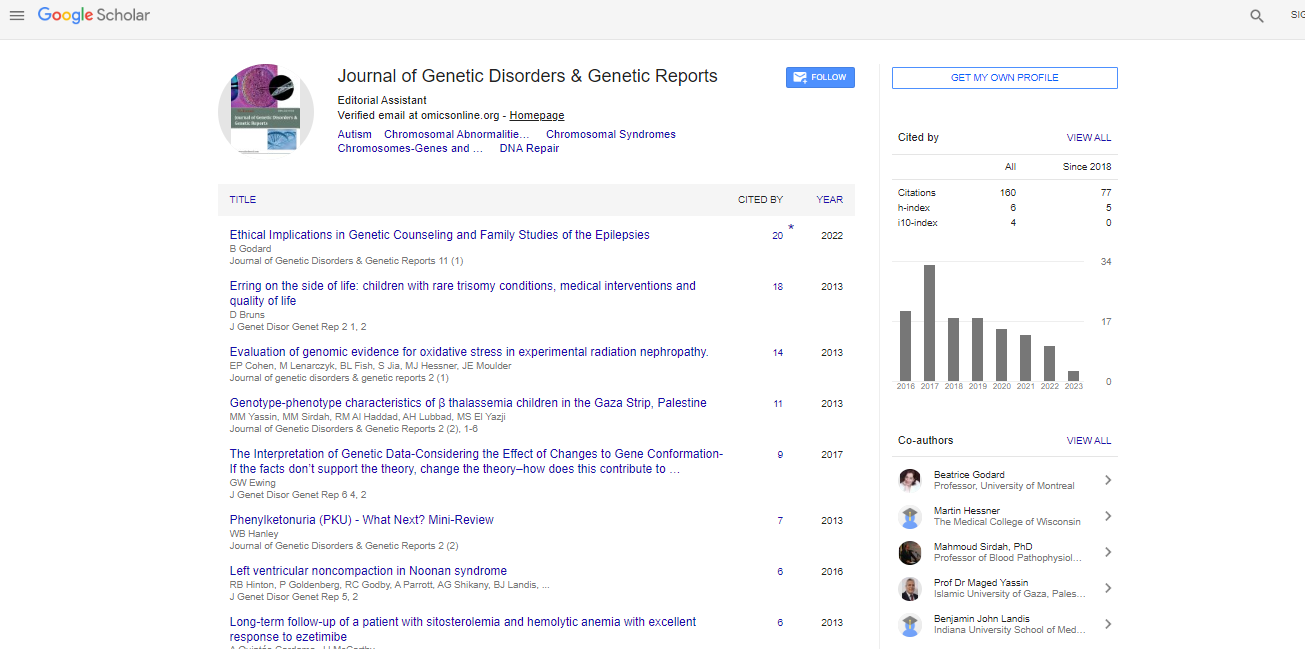Research Article, J Genet Disor Genet Rep Vol: 7 Issue: 3
Parental Consanguinity and Birth Defects in Lebanon: The National Collaborative Perinatal Neonatal Network (NCPNN)
Farra C1, El Rafei R1, Mumtaz G2, Charafeddine L1, Tlays F3 and Yunis K1*
1Department of Pediatrics and Adolescent Medicine, American University of Beirut Medical Center, Beirut, Lebanon
2Infectious Disease Epidemiology Group, Weill Cornell Medical College in Qatar, Qatar
3Department of Pediatrics & Adolescent Medicine, Nini hospital, Tripoli, Lebanon
*Corresponding Author : Khalid Yunis
Department of Pediatrics & Adolescent Medicine, American University of Beirut Medical Center, Po Box: 11-0236, Riad El Solh 1107 2020, Beirut, Lebanon
Tel: +96 11350000 Ext: 5512
E-mail: kayunis@aub.edu.lb
Received: November 05, 2018 Accepted: November 23, 2018 Published: November 30, 2018
Citation: Farra C, El Rafei R, Mumtaz G, Charafeddine L, Tlays F, et al. (2018) Parental Consanguinity and Birth Defects in Lebanon: The National Collaborative Perinatal Neonatal Network (NCPNN). J Genet Disor Genet Rep 7:3. doi: 10.4172/2327-5790.1000181
Abstract
Objective: To determine the prevalence of birth defects (BD) and its correlation with parental consanguinity in a representative population of Lebanon.
Methods: Secondary data analysis of the National Collaborative Perinatal Neonatal Network (NCPNN), reporting on neonates between September 2003 and December 2007.
Results: Among 50,396 live births, 1,637 were diagnosed with one or more birth defects for an overall prevalence of 32.5‰. The most prevalent defects were cardiovascular, urogenital and musculoskeletal with 15.1‰, 6.3‰ and 5.7‰, respectively. Approximately 40% of affected newborns had multiple defects involving one or more organs. Syndromes were suspected in 128 neonates of whom 77.3% were diagnosed with chromosomal aneuploidies (mostly Down syndrome). Consanguinity was reported among 15.73% of parents, and the odds of BD were found to be significantly increased among first-cousins consanguineous couples (OR 1.6; 95% CI: 1.2-1.7).
Conclusion: Findings of this study estimated for the first time the overall prevalence of BD in Lebanon, with congenital heart anomalies being most common. They further established a significant association between parental consanguinity and the odds of BD in offsprings.
 Spanish
Spanish  Chinese
Chinese  Russian
Russian  German
German  French
French  Japanese
Japanese  Portuguese
Portuguese  Hindi
Hindi 



